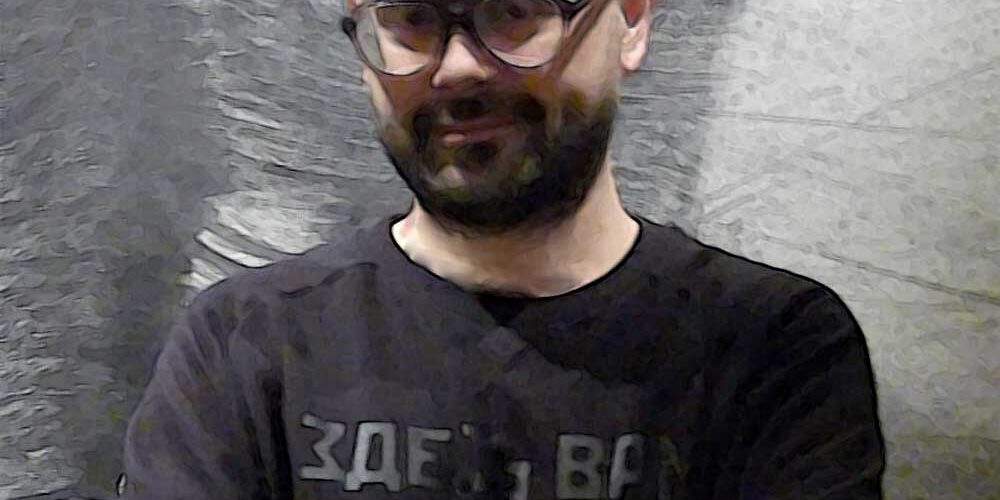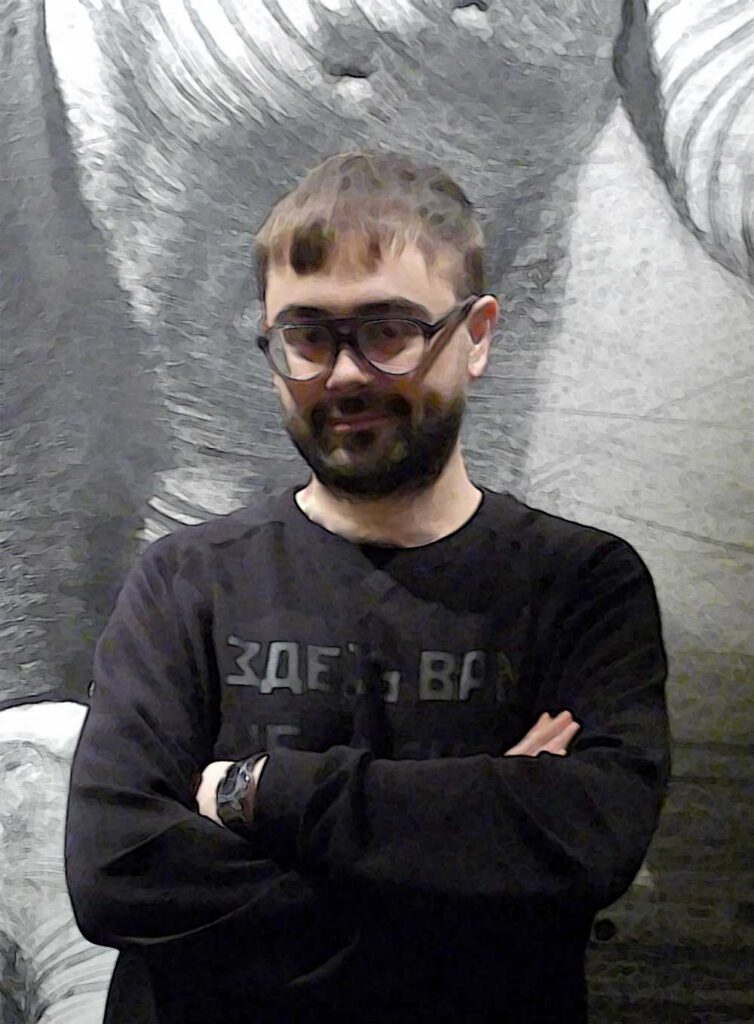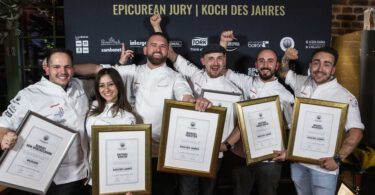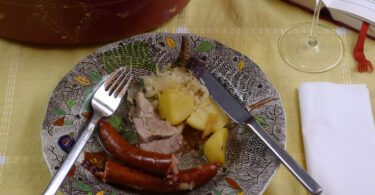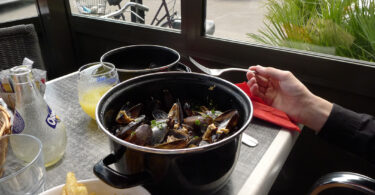In October 2018 the Russian master chef Evgeny Vikentev opened his Fine Dining Restaurant “CELL” directly at the Ku’damm in Uhlandstrasse.
The shooting star is currently making the gourmet scene in Berlin shine even brighter than usual.
His menus should not be restricted by artistic or geographical boundaries.
Vikentev tries to communicate meaningful messages and new perspectives, an essential component in all forms of modern art.
“I’ve been fortunate enough to spend a lot of time travelling around the world. The Berlin scene has something that really attracts me. I am incredibly excited to open a restaurant in such a vibrant, energetic and artistic city!”
Evgeny Vikentiev
MG:Dear Evgeny, a really beautiful sentence! Is cooking art or craft?
EV: Cooking is art for me, it is a part of modern art. Gastronomy as art is unique, the only art for all senses. You can see it, you can hear it, you can smell it, you can feel it. When you visit an exhibition you can use your eyes to understand. Gastronomy demands and works with all senses we have.
MG: Many great chefs come from a gastronomic environment, often the father is a cook or hotelier.
There are veritable dynasties, such as the Haeberlins in Alsace.
How did you become a cook, was that coincidence or destiny?
EV: I can say for sure that I liked cooking when I was young. After school I thought about: What should I do? I learned how to cook at a culinary institute in St. Petersburg.
MG: You had the chance to cook at Albert Adrià’s restaurant 41°C and at Giuseppe Richebuono’s Il Vescovado. Richebuono interprets Ligurian cuisine in a fine and elegant way, Albert Adrià is a master of illusion.
Who was your most influential Master?
EV: They both had a big influence on me. Ricchebuonos gastronomy is more simple, more classic, rather old school than new school, but at that time it was very good for me to understand what he was doing. After several years I had an experience with Albert Adrià, this was more interesting for me. Albert and his brother have changed the gastronomic world completely.
MG: Modern haute cuisine is individualized, today you need even more creativity and personality to stand out from the crowd.
Is there a Signature Dish you became famous with?
EV: A difficult question. Here in Cell each dish in the menue is part of a big story, it is difficult to mark a signature dish. Every course is part of a theatre, every dish is an act in the play.
MG: Let’s talk about art again, Berlin is full of it. There are big museums, modern galleries and street art. You have designed your restaurant with a kind of Bauhaus concept. The environment factor strengthens ideas and creations, haute cuisine today lives from an integral concept.
Bauhaus and Vikentev, is this the stylistic fusion of your imagination?
EV: I like Bauhaus, this is a typical german type of art. When we came to Berlin, we were looking at art and found this place here. The Bauhaus style integrates very harmoniously here, that was our idea.
MG: Are you the intellectual or the emotional chef?
EV: I think I compare this together, because sometimes you have emotions after intellectual experience. These are two things that cannot exist without each other.
MG: For some time now, the cooking here is very professional and creative.
I’ll just give you a few names:Christian Bau at Victor’s, Kevin Fehling “The Table”, Tristan Brandt “Opus V”. Haute cuisine in Germany has developed positively with various concepts. There are restaurants that insist on regionality, while others convince with their technology and elegance.
Have you dealt with the latest developments, are you looking for contact with the big players of the scene?
EV: No, I don’t have very much contact, but for sure, I visited a lot of restaurants here in Berlin. Tim Raue, of course Horváth. I like Horváth, great place. What I like is “Mrs. Robinson’s” at Prenzlauer Berg, not directly Fine Dining, it is a fusion between german and asian cuisine. „Prism“ is very good too!
MG: Vegetarian dining, a trend that you skilfully pick up with your “ROOTS RELIGION” menu. The vegetarian dish requires dedication and technique, perhaps the vegetarian guest is particularly observant when it is about texture and sensory perception.
Are you particularly passionate about vegetables and where have you learned to play with them so imaginatively?
EV: I don’t know, vegetables are a part of all ingredients. Here in Germany you can find good vegetables, winter-season is difficult, but nine months of the year you can find farm- and open ground vegetables.
Another reason for vegetarian cooking is that here in Berlin there are a lot of vegetarians. It is a big problem for them to find restaurants with interesting vegetarian meals. I think it’s a good deal to do something vor veggie-lovers and vegetarians. I love vegetables very much.
MG: Berlin is also a political city. Politicians of all types are giving each other a hand in the trendy restaurants.
Has your house already welcomed prominent guests?
EV: All my guests are very important for me, doesn’t matter what they are. For me there is no difference if the guest is a president or the guy from the street. Every guest who enters my restaurant is a V.I.P.!
MG: It is well known that in the upscale gastronomy the calculation is at the limit. Especially the Germans prefer to drive a Mercedes S-Class to the restaurant parking lot to eat a goulash soup, which is completely different in France, for example. There I ride my bike and then rejuvenate half a month’s salary.
A ticket shop there offers security against turnover losses. You book via Opentable, do the guests accept this system?
EV: Yes, it’s ok. It is very comfortable, I can check the guestlist for tomorrow or after tomorrow.
MG: Overall, the gastronomy sector suffers from a shortage of manpower. It has become complicated to find employees, the market is practically empty.
How do you as a new Berliner evaluate the situation on the job market?
EV: Situation was difficult at the beginning, but now I’ve got a talented and powerful team. In Russia I’m a famous chef with a lot of contacts, so it was a little bit easier.
MG: Politics and culinary. Russia suffers again and again from sanctions such as those imposed by the EU. Certain products are hard to acquire.
Does this situation perhaps even result in a boost to creativity?
No, we have no problems, only the first week when the embargo started was difficult.
St.Petersburg is close to Finland, there are websites you can find anything you need. A lot of adds come from Finland, by the way, like this I found some cheaper cigarettes, in Russia they are a bit expensive (laughs). You can buy all stuff you need for a restaurant there. We have never had any problems getting foreign products. After the beginning of the embargo the prices went down, simply because many people went to Finland and brought some back. For me this was never a problem, because my flagship restaurant works 90% with Russian ingredients anyway.
In Hamlet & Jacks I use a lot of fish from the white sea, very cold water, we have mussels, halibut, salmon, a huge selection of wonderful fish. Russian meat is good as well, by the way.
MG: Would you tell our readers your favourite dish?
EV: My favourite dish? Depends on my mood. I think something in asian cusine.
MG: Evgeny Vikentiev cooks creatively, imaginatively, with the best ingredients and moreover has a concept.
Doesn’t that cry out for a star in the Guide Michelin?
EV: It would be nice for business because we would be more popular in the culinary scene. But I don’t think about it, my mission is to make people happy.
Evgeny, thank you very much for this interview!
![[:de]Grandgourmand, Travel, Food, Lifestyle[:]](https://grandgourmand.de/wp-content/uploads/2023/01/logo_23_1-1.png)
